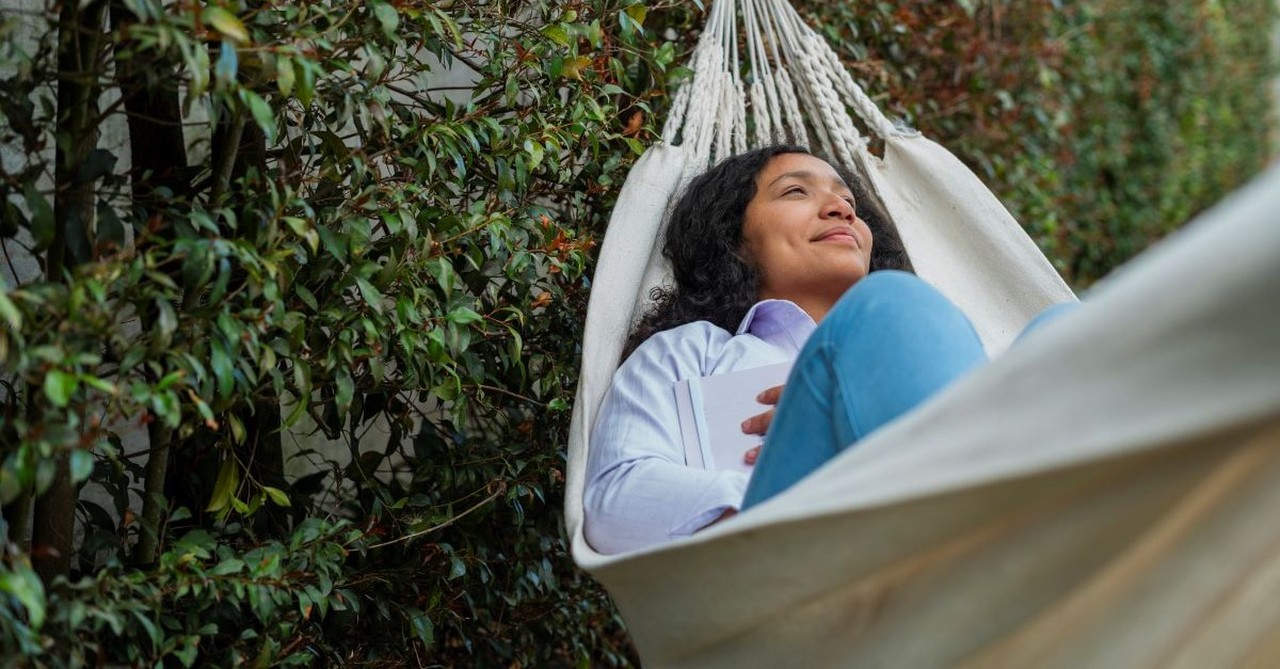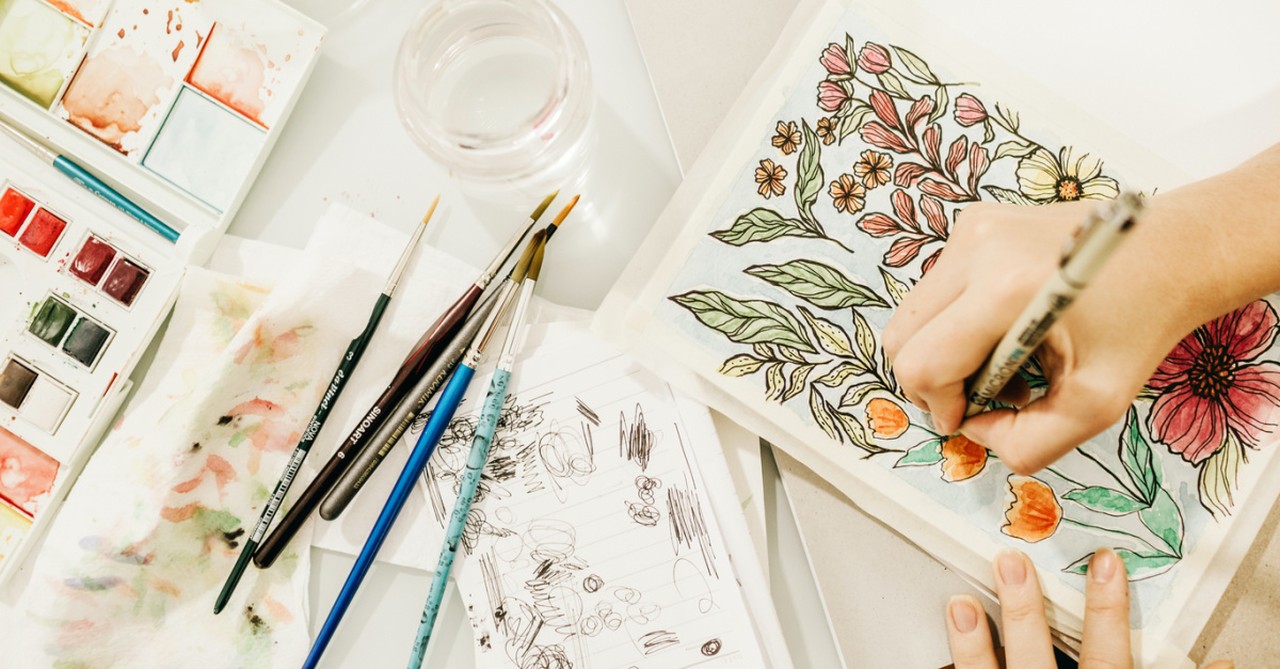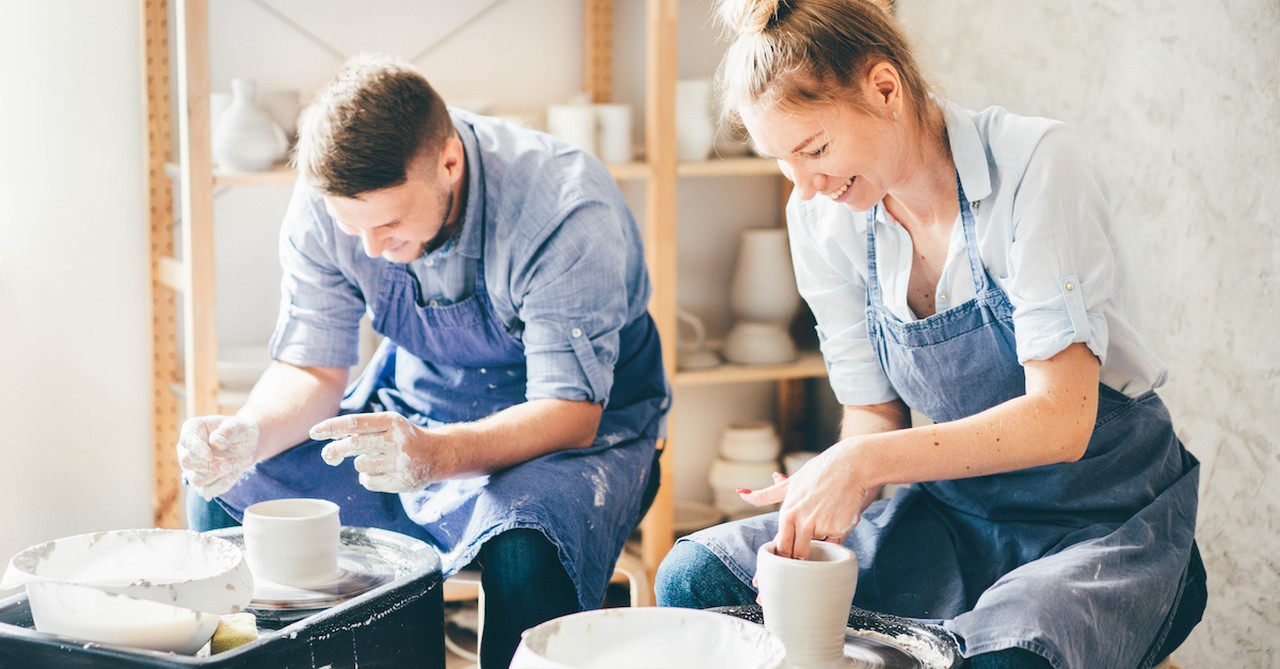5 Creative Ways Christians Can Participate in Self-Care

Over the last several years, "self-care" has become a bit of a buzzword. Often, when we think about it, we picture candle-lit bathrooms with tubs overflowing with bubbles and moisturizing face masks smoothed out over our skin as ambient music trills in the background. According to the World Health Organization, self-care is, in short, the ability "to promote and maintain" one's own mental and physical health. So, while orchestrating an at-home spa night is certainly one method of practicing self-care, it's not the only way.
It's no secret that therapy is one of my most well-recognized forms of self-care. And while I will always recommend it, I can also recognize that not everyone can afford it, and frankly, not everyone is comfortable with it. For better or for worse, we live in the technology age, where the internet, and therefore, information are easily accessible. That means there are plenty of at-home methods for improving one's mental health.
Here is our list of five creative ways Christians can practice self-care:
©GettyImages/Mario Arango
1. Creating art without expectations.

1. Creating art without expectations.
SLIDE 1 OF 5
For many years, I saw a therapist whose practice specialized in utilizing art and music to work through trauma. Each session, I would sit on a small tan couch with a notepad in hand and a rainbow of markers at my disposal. Instrumental music designed with relaxation in mind would play in the background as my therapist asked me questions about my past and current feelings. When the music stopped, I would scribble little shapes and pictures to express my emotions fully. Honestly, I couldn't tell you the ins and outs of how it worked, but I can confidently confirm that it did. And, while we might not be able to get all of the same therapeutic benefits by doing this alone, we can still find joy and healing in expressing ourselves through art.
In fact, one of my favorite spring activities is setting my easel near the edge of the woods bordering my property and painting a landscape. It's a method of escaping the harsh realities the world sometimes thrusts upon us. It's a mode of self-expression and relaxation, the latter of which many of us have little time for. It's also a way for us to tap into our God-given gifts and passions. And listen, I get the urge to want your watercolor painting to be the next Monte, but using art for self-care is almost certainly better when we eschew the pressure of perfection.
"He has filled them with skill to do all kinds of work as engravers, designers, embroiderers in blue, purple and scarlet yarn and fine linen, and weavers-all of them skilled workers and designers." - Exodus 35:35
Photo Credit: ©Jonathan Borba/Unsplash
2. Spending time in nature.

2. Spending time in nature.
SLIDE 2 OF 5
Most of the time, self-care is less about extravagance and more about intentionality. What I mean by this is that we don't need to buy the newest aromatic candles and luxury bath bombs to show ourselves some love (which is not to say that you can't or shouldn't; it's just not always necessary). Sometimes, all we need is just outside our front doors.
Spending time in nature is reconnecting with God's creation and drinking in the beauty of the world. It's incredibly easy to overlook or forget the benefits of outside time. According to McLean Hospital, a leading mental health care provider, there is a proven correlation between spending time outside and improved mental health. The hospital sites that time in nature can allow one to feel mentally rested, rejuvenated, and creatively nourished.
Perhaps this isn't an exceptionally "creative" self-care practice, but many have experienced benefits from it. Some of my favorite outdoor activities include hiking, nature walks, gardening, and reading a good book under the canopy of a towering tree.
"But ask the animals, and they will teach you, or the birds in the sky, and they will tell you; or speak to the earth, and it will teach you, or let the fish in the sea inform you. Which of all these does not know that the hand of the LORD has done this? In his hand is the life of every creature and the breath of all mankind." - Job 12:7-10
Photo Credit: ©Unsplash/frdm
3. Jotting your thoughts down with pen and paper.

3. Jotting your thoughts down with pen and paper.
SLIDE 3 OF 5
Countless scientific studies have analyzed the correlation between journaling and emotional well-being, and many found that by writing down your thoughts, feelings, fears, and dreams, you're allowing yourself to process the noise inside your head and better manage your emotions. For as long as I can remember, journaling has been my go-to method for unwinding. And while I find a lot of release in simply recounting my day or scribbling a couple of pages of ideas, brain dumping isn't the only method of diary writing. In the last several years, more creative forms of journaling have become popular-writing styles such as bullet journaling, gratitude listing, and art journaling.
Bullet journaling is both an organizational method and a mindfulness practice. It's a journaling method by which one creates monthly technicolor mood boards, productivity charts, calendar pages, and more all in one book. The technique has become so popular that entire sections of the internet are dedicated to showing people how to do it.
Gratitude lists are likely something you've heard of. Maybe you've even tried making them before. The benefits of acknowledging the things we are grateful for are two-fold. Not only are we expressing thankfulness to God for the blessings, support, or safety He's provided us, but we are also showing ourselves some love. When we express gratitude, our brains release serotonin and dopamine--natural chemicals known to make us feel happier.
Art journaling is a method of self-expression that mixes written words and art. Maybe you find writing pages upon pages of your deepest feelings to be a bit daunting. Well, art journaling allows you to mix those words with art pieces. While it's not a certified therapeutic method, as I've discussed ad nauseam, there are proven emotional and physical benefits to expressing emotion.
"Every good and perfect gift is from above, coming down from the Father of the heavenly lights, who does not change like shifting shadows." - James 1:17
Photo Credit: ©GettyImages/bingokid
4. Learning a new hobby or skill.

4. Learning a new hobby or skill.
SLIDE 4 OF 5
Have you ever felt stuck in your routine? Overwhelmed by feeling like every day is exactly the same as the last? If you said yes, you are in good company. A 2023 study by Virgin Media O2, the news arm of the London-based cell phone company Virgin Mobile, found that 61 percent of Brits say they are "stuck in a rut." But it's not just the English feeling this way. Global trends on unhappiness are on the rise. There is a whole host of things contributing to this, many of which are outside of our control (but that's an entirely different article). Something we can control, however, is isolating why we feel stuck and then switching things up. Trying new things both increases our cognitive function and improves our mental well-being. More simply, it forces us to get out of our comfort zones.
The list of activities you can try is boundless, but a few niche projects I've either tried or plan to try include polymer clay jewelry making, bookbinding, throwing pottery, archery, baking, and leisure reading. But of course, for the sporty ones among us, pickup basketball or football games are great options. And for the techy ones, building a custom PC, scheduling some gaming sessions with friends, or experimenting with a new piece of tech might allow you to shake things up.
"For the Spirit God gave us does not make us timid, but gives us power, love and self-discipline." - 2 Timothy 1:7
Photo Credit: ©GettyImages/Maria Korneeva
5. Spending time meditating on God's plan.

5. Spending time meditating on God's plan.
SLIDE 5 OF 5
Meditating almost feels like the final boss of self-care. To many, it sounds intimidating, overwhelming, or even a little "whoo-whoo." For many years, I felt the same way. That is, until I re-framed it. Meditating as a Christian is simply spending time in God's presence, i.e., reading the Word and praying. No one can ever be a better listener or advice giver than the Father, but for some reason, when life gets busy or overwhelming, one of the first things to suffer is our communication with God.
Make an effort to be intentional with God. Carve out time each day to sit quietly in God's presence, even if it's just five minutes in the morning as you drink your daily cup of coffee. Close your eyes, take a deep breath, and bring your gratitude, dreams, worries, and fears to the Creator. Think about this for a moment. We have a direct line of communication with the Creator of the universe. Why would we ever want to neglect that?
"Do not be anxious about anything, but in every situation, by prayer and petition, with thanksgiving, present your requests to God. And the peace of God, which transcends all understanding, will guard your hearts and your minds in Christ Jesus." - Philippians 4:6-7
Related:
Gratitude Bible Verses
Photo Credit: ©GettyImages/Amber N Ford
Kayla Koslosky is the former Editor of ChristianHeadlines.com. She has B.A. degrees in English and History and previously wrote for and was the managing editor of the Yellow Jacket newspaper. She has also contributed to IBelieve.com and Crosswalk.com.
Originally published June 27, 2024.









